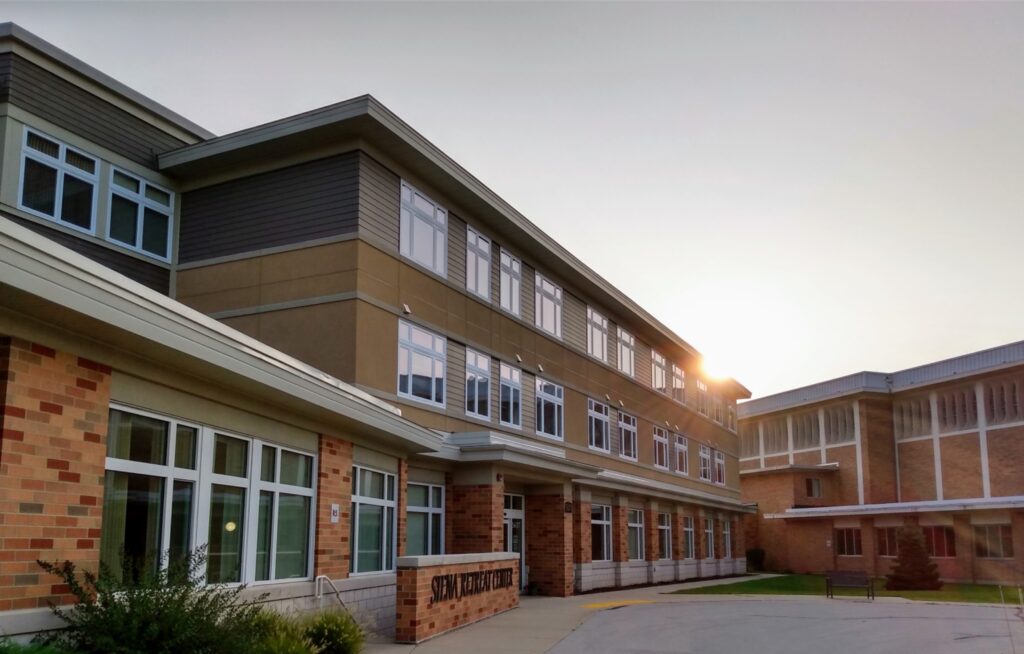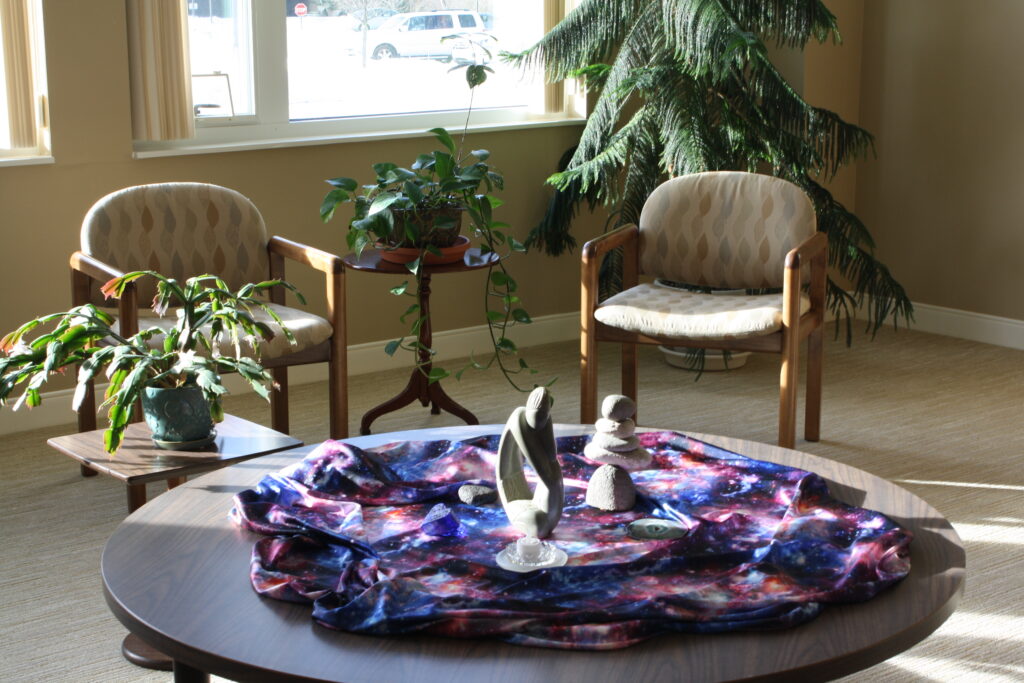What gives your life meaning? It’s a question our brains are naturally programmed to explore. Recent studies have revealed strong connections between spirituality and health, both rooted in how we find purpose in our lives. Interestingly, much of this research began with the goal of understanding the rising prevalence of depression and anxiety in our society.
“We live in an age of unprecedented mental anguish,” writes clinical psychology professor Lisa Miller, PhD, in The Awakened Brain: The New Science of Spirituality and Our Quest for an Inspired Life. Miller cites numbing statistics on the rates of mental illness. Her clinical research, however, reveals hopeful and even game-changing findings. The more patients engaged in spirituality, the healthier their brains were.
In short, “our brains are wired to perceive and receive that which uplifts, illuminates, and heals,” writes Miller. She founded the Spirituality Mind Body Institute at Columbia University in 2012 to “integrate spiritual life into our society.”
Other researchers observe similar trends and find similar results. University of Toronto psychology professor John Vervaeke, PhD, has identified a “Meaning Crisis” in our culture.
“People are feeling disconnected from themselves, from each other, from the world, and a viable and foreseeable future,” Vervaeke writes.

In his online series, he seeks to open dialogue about “cognition, culture, and community.”
The epidemic of meaninglessness, which Vervaeke has identified, is reversible. According to author and thinker Jeremy Lent, “meaning is a function of connectedness.” In his book The Web of Meaning, Lent observes that “the meaning of something [is] the network of relationships it is perceived to have.” In other words, the more connection and integration we experience, the more meaning we have in our lives.
Two extensive studies have also detected links between spirituality and health. The Fetzer Institute’s 2020 study of spirituality in the United States showed that “people’s inner experiences of spirituality and their outer social lives long to be connected. Establishing this connection,” the study continues, “is essential for harvesting spirituality’s rich potential for personal and societal transformation.”

Similarly, the recent Global Flourishing Study, a partnership with Gallup, tracked six aspects of human flourishing: happiness, character, relationships, financial stability, meaning, and health. Among 200,000 people in over 20 countries, the study found that those who identify as spiritual, religious, or both report more significant measures of flourishing than those who do not.
Siena Retreat Center in Racine, Wisconsin, is a place where people can cultivate meaning in their lives. By offering space for personal and group retreats, spirituality programs, and one-on-one spiritual companioning, Siena Retreat Center helps people make the connections that construct meaning and purpose.

“We make these connections by helping people become more self-aware,” shares Siena Retreat Center’s Program Director Vicky Curtiss. “We also connect people to the great body of wisdom from the world’s spiritual traditions. We provide ways for people to listen to their bodies, to nature, to the voice within their hearts, and the voices of others, especially those on the margins.”
As the Fetzer Institute’s study articulates, “human beings yearn for a spirituality that will root us in the love, courage, and hope that we need to build our lives and communities.” One-on-one spiritual companioning at Siena Retreat Center allows one to sort out questions of meaning and purpose and find spiritual practices that resonate with what they seek.
Because each person’s life has unique circumstances, Siena Retreat Center’s year-round offerings include a wide range of themes and a variety of retreat lengths, from mornings of reflection to weeklong retreats, giving participants options that fit their schedules. Some programs are offered virtually, making them accessible to those unable to attend in person. Need-based partial scholarships are also available, ensuring everyone can benefit from spiritual engagement, social connection, and retreat content, regardless of economic situation.
Located on Lake Michigan between Chicago and Milwaukee, the 67-bedroom center also offers space for groups to hold their own retreats that can help foster fosters the sense of belonging that helps people build meaningful lives. A restored prairie, outdoor labyrinth, and lakefront access invite retreat participants to reconnect with nature.

Where to Learn More: A Recommended Book List
The Awakened Brain: The New Science of Spirituality and Our Quest for an Inspired Life Rain by Dr. Lisa Miller (Random House, 2021) outlines the neurological research that connects spirituality and improved health.
Awe: The New Science of Everyday Wonder and How It Can Transform Your Life by Dacher Keltner (Penguin Books, 2023) connects the emotion of awe with constructing meaning in life. Art, nature, acts of kindness, the birth of a child, or even profound challenges can evoke a sense of wonder that leads to deep joy.
The Blue Zones: Secrets for Living Longer, Lessons from the Healthiest Places on Earth by Dan Buettner (National Geographic, 2023) gives readers a window into six places where people live long lives. One common characteristic is having a purpose for living.
Enchantment: Awakening Wonder in an Anxious Age by Katherine May (Riverhead Books, 2023) describes the reality of many people’s fear and emptiness and one woman’s quest to rediscover enchantment.
The Web of Meaning by Jeremy Lent (New Society Publishers, 2021) lays the scientific and historical groundwork for how humanity has made meaning through time.
What to Expect on a Retreat at Siena Retreat Center

- emotional and mental space for the freedom to listen to what is deep inside
- the option for one-on-one spiritual companioning, scheduled in advance
- a peaceful natural setting on Lake Michigan and a beautiful ADA-accessible building
- a private bedroom and bathroom, meals on-site, access to a creativity room with art supplies, and a sitting room for reading and journaling
- group retreats and programs on a wide range of topics, from grief to social justice and from pilgrimage to poetry.
How To Help
Siena Retreat Center’s mission is to provide retreats and programs “that renew lives and deepen holistic spirituality in an environment of peace, joy, and beauty.” Donations to the program help organizers maintain the center, enhance programs, and support scholarships for potential visitors.

This post was submitted as part of our “You Said It” program.” Your voice, ideas, and engagement are important to help us accomplish our mission. We encourage you to share your ideas and efforts to make the world a better place by submitting a “You Said It.”
More From Better
- You Are Not Alone: Advice, Help and Resources for Suicide Prevention and Mental Health Awareness
- ‘They Helped Save My Life’: How Ignatian Spirituality Project Impacts People Facing Homelessness and Addiction
- Expanding Access to Combat the Mental Health Crisis: How the Family Institute Is Bridging the Gap
Claire Anderson holds a master’s degree in history and an Ecumenical Doctor of Ministry degree from the Catholic Theological Union in Chicago. She serves as the Executive Director of Siena Retreat Center in Racine, Wisconsin. Her learning pursuits include the connections between science and spirituality. She draws on global experiences, including living in Poland, in her exploration of cosmology, culture, and spirituality. Claire is the author of Seasons of the Slavic Soul: A Quest for an Authentic Polish Spirituality.

